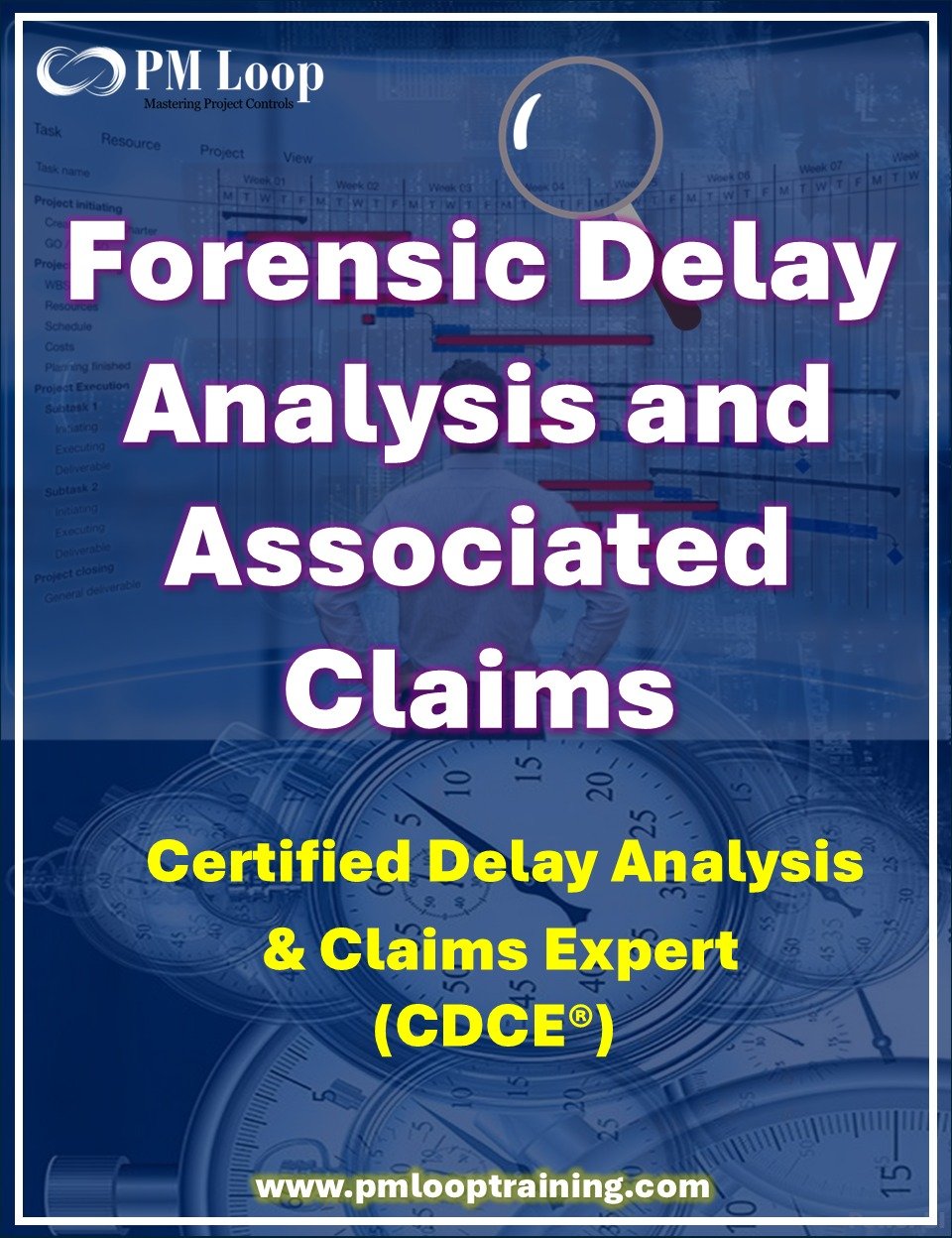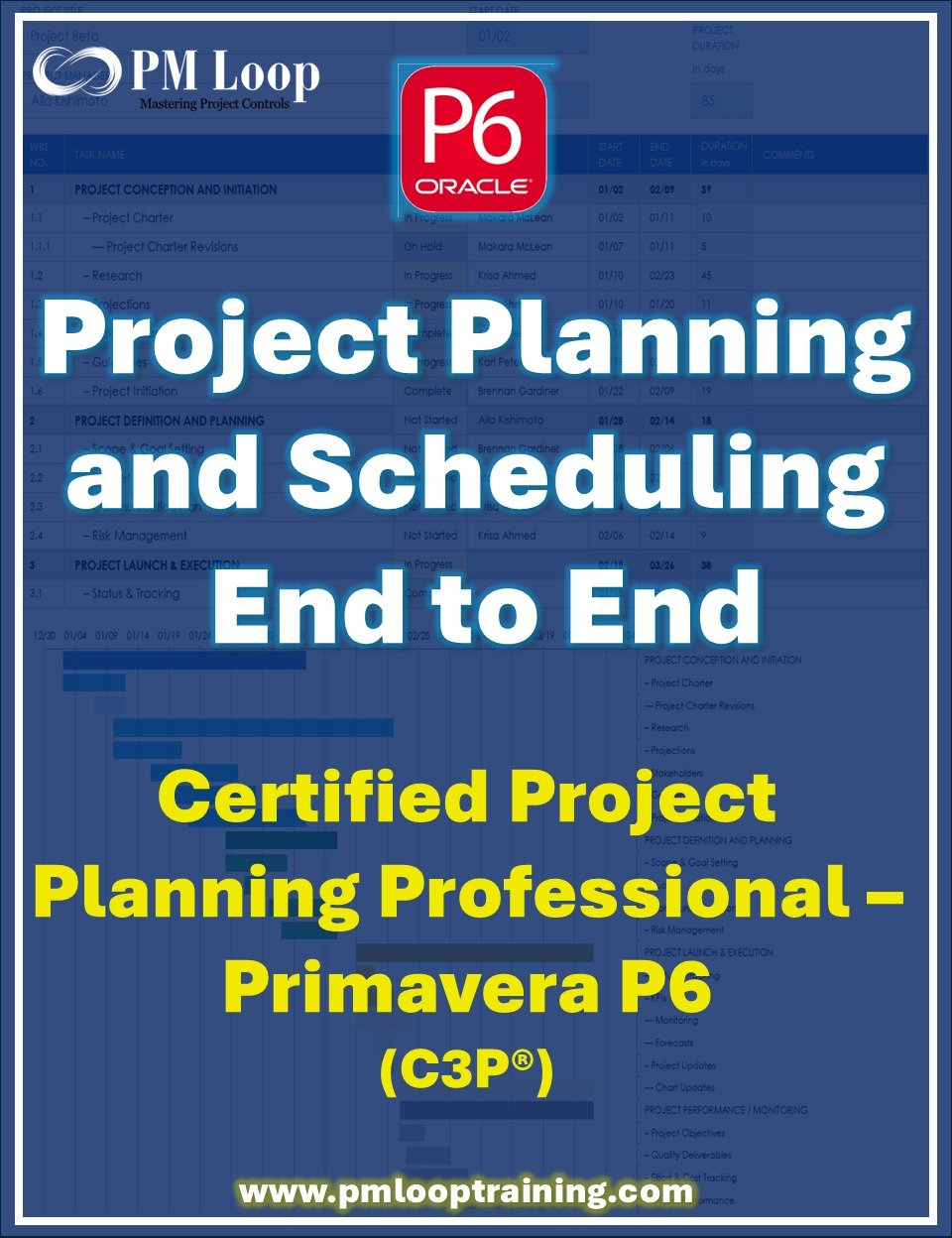Project delays and claims are common—and often lead to Extension of Time (EOT), prolongation and disruption claim requests or even costly claims and disputes. Many EOTs remain unresolved due to unclear analysis methods or delays being absorbed into the schedule, resulting in prolonged negotiations or legal action.
The question is: how can you manage delays before they escalate?
Do you know which delay analysis methods to use?
Do you find the process complex and overwhelming?
With proper forensic schedule delay analysis, you can:
Whether you’re addressing issues during a project or after completion, mastering delay analysis is key to protecting your project’s success.

Poor delay analysis is one of the top reasons claims remain unresolved—leading to costly and prolonged disputes.
But with early and effective forensic delay analysis, you can:
✅ Accurately assess the cause and impact of delays during routine schedule reviews—even when delays are absorbed
✅ Uncover hidden delays and address them early
✅ Save time, money, and effort by avoiding formal dispute resolution
Forensic Delay Analysis is both a science and an art—essential for every project controls professional.
In real projects, delays happen. The ability to analyze and manage them effectively helps you:
✔ Proactively prevent claims
✔ Resolve disputes faster
✔ Reduce dependence on external consultants
Become the go-to expert in your organization—and protect your projects from avoidable risks.
Many planners and schedulers are asked to perform forensic delay analysis without a clear understanding of the right methodologies.
They often rely on one or two techniques, unaware that each situation requires a tailored approach. This leads to inaccurate conclusions and weakens the credibility of the analysis.
Forensic schedule analysis is a specialized field that demands both technical knowledge and claims experience. Yet, most project controls professionals have never received formal training in this area.
Imagine having the skills to confidently apply the right delay analysis method in any situation—accurately, efficiently, and professionally.
Proactively Prevent and Resolve Claims
By mastering the right forensic delay analysis methods, you can effectively respond to, minimize, and even prevent project claims.
Course Outline & Agenda
Poor delay analysis is one of the top reasons claims remain unresolved—leading to costly and prolonged disputes.
But with early and effective forensic delay analysis, you can:
✅ Accurately assess the cause and impact of delays during routine schedule reviews—even when delays are absorbed
✅ Uncover hidden delays and address them early
✅ Save time, money, and effort by avoiding formal dispute resolution
Forensic Delay Analysis is both a science and an art—essential for every project controls professional.
In real projects, delays happen. The ability to analyze and manage them effectively helps you:
✔ Proactively prevent claims
✔ Resolve disputes faster
✔ Reduce dependence on external consultants
Become the go-to expert in your organization—and protect your projects from avoidable risks.

Project Controls, Reporting & Claims Expert
If you have a basic understanding of scheduling and cost concepts, you’re ready to start.
Delivery Format
Sessions are delivered online in live sessions.

Advanced Power BI Data Analytics For Project Controls.

Forensic Delay Analysis and Associated Claims.

Project Cost and Budget Control.

Project Planning and Scheduling – End to End.
Gain foundational knowledge of delay types and key contractual considerations.
✅ Understand Critical Path delays and their impact
✅ Explore disruption and productivity loss concepts
✅ Differentiate between excusable and non-excusable delays
✅ Identify compensable versus non-compensable delays
✅ Understand float ownership and the right to early completion
✅ Address notice requirements and waiver issues
✅ Examine exculpatory clauses in contracts
✅ Evaluate and validate the baseline schedule
✅ Review and assess updated schedules
✅ Analyze as-built schedule data for accuracy
✅ Identify and resolve conflicts in as-built sources
✅ Validate change management records and data
Tackle common technical challenges in schedule analysis.
✅ Analyze software-related issues, including version settings
✅ Address errors from re-baselining, lack of updates, and resource leveling
✅ Review AACE’s Recommended Practice for forensic schedule analysis
✅ Learn methodologies per AACE's Recommended Practice
✅ Apply 10 key criteria to select the appropriate analysis method
✅ Conduct a qualitative review of impact techniques
✅ Use a claims triage workshop to guide method selection
Deep dive into two widely accepted forensic analysis techniques.
✅ Contemporaneous Period Analysis (CPA)
✅ Bifurcated Critical Path Analysis
✅ As-Planned vs. As-Built analysis
✅ Retrospective Time Impact Analysis (TIA)
✅ Perform causation analysis to determine root causes
✅ Assign responsibility for delays accurately
✅ Understand concurrent and pacing delays
✅ Identify delays not attributable to any party
Learn proactive strategies to reduce the impact of delays.
✅ Mitigate delays through acceleration
✅ Apply other mitigation measures (e.g., milestone waivers, scope reductions)
✅ Re-sequence work through logic changes
✅ Evaluate and allocate mitigation cost savings
✅ Understand core concepts of productivity and disruption
✅ Select the appropriate methodology for your project
✅ Conduct project-specific productivity analysis
✅ Apply the Measured Mile approach
✅ Use Earned Value Management for productivity analysis
✅ Implement work sampling and time studies
✅ Perform project comparison analyses
Explore how to quantify delay-related costs and claims.
✅ Interpret “No Damages for Delay” clauses
✅ Differentiate between estimated and actual damages
✅ Identify indirect or time-related cost claims
✅ Calculate direct costs from delays
✅ Structure comprehensive claim calculations
Develop strong reports and deliver professional presentations.
✅ Prepare clear, defensible expert reports
✅ Present findings using charts, timelines, and 4D models
Apply everything learned in a final case study and workshop.
✅ Analyze the MIP 3.4 case study in detail
✅ Review and reinforce claim triage techniques
Stay updated and sharpen your skills with exclusive live sessions.
✅ Forensic analysis of acceleration scheduling
✅ Common expert witness pitfalls and how to avoid them
By the end of this training, you will be able to:
Upon successful completion, you will receive an official Certificate of Completion:

Master forensic delay analysis to proactively prevent claims, resolve disputes efficiently, and establish yourself as a trusted forensic delay analyst and expert witness—without costly errors or confusion.
Who Is This Training For?
This training is ideal for you if:
✔ You’re a Project Controls Manager, Planning Manager, Project Planner, Scheduler or Contract Administrator, looking to expand your skills into analyzing absorbed delays and mastering forensic delay analysis.
✔ You’re an Expert Witness seeking to enhance your methodology selection and analytical techniques.
✔ You have some experience with forensic delay analysis but want formal training to deepen your understanding of standard industry practices.
Learn at your convenience — anytime, anywhere. Get full access to all recorded sessions and course materials for one year from your registration date, no matter when or where you study.
Earn a recognized certificate upon completing the training, along with 35 Professional Development Units (PDUs) — ideal for maintaining your licenses and advancing your career.
Access downloadable PDFs of course slides, plus additional resources like templates, checklists, and technical papers to support your learning.
Work through hands-on case studies that deepen your understanding of the course and equip you with practical project experience.
All course content is hosted on a secure, easy-to-use learning management system. Log in with your unique credentials for a safe and reliable experience.
Access the training on desktop, laptop, or mobile devices including iPhones, iPads, and tablets — enabling flexible, on-the-go learning.
Ask questions directly in a private Q&A environment where instructors respond weekly. Also, get a chance to join quarterly live Q&A sessions with your trainer.
Enjoy special discounts on future training programs with Project Control Academy as a valued alumni member.
Gain access to a comprehensive collection of detailed Q&As covering key topics in Forensic Schedule Delay Analysis — curated from real student inquiries over the years.
Receive a practical checklist outlining essential considerations and minimum protocols for selecting and applying delay analysis methodologies, along with notes on when enhanced protocols are needed.
Be fully prepared for your first meeting with a dispute resolution client. This checklist guides you on exactly what information to gather for a productive and professional interview.
Over $1,500
You will pay:
Only 350
For the entire training
With $350 investment, you can begin your journey as an expert. The return on this investment will be substantial once you learn how to perform effective forensic delay analysis, proactively prevent claims, resolve disputes, and stand out as a forensic delay analyst & expert witness!
Hi. Welcome to PM Loop. How can we help you today?
🟢 Online | Privacy policy
Chat with us.